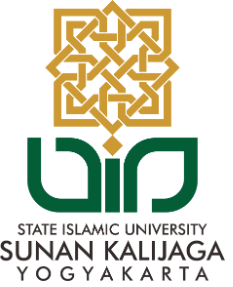Reassessing the Concept of Empowerment in the Context of Ambon's Maritime Communities
A Critical Reflection on Locally-Based Social Intervention Practices
Keywords:
Empowerment, Maritime Communities, Ambon, Social Intervention, Indigenous Knowledge, Participatory DevelopmentAbstract
Purpose – This study reassesses the concept of empowerment in the context of Ambon’s maritime communities by critically examining how externally designed social interventions align—or fail to align—with local realities. It addresses the need to rethink empowerment not merely as individual economic advancement, but as collective well-being rooted in indigenous social structures and marine-based livelihoods.
Design/methods/approach – A qualitative, reflexive approach was used, involving semi-structured interviews, participant observations, and focus group discussions in three coastal villages in Ambon. Participants included traditional leaders, fisherfolk, women, youth, and local NGO practitioners. Data were analyzed thematically using critical community practice and decolonial theory frameworks.
Findings – The study found that many empowerment programs operate with a standardized logic disconnected from local cultural values. Community members define empowerment in terms of mutual support, social harmony, and ecological sustainability—values often overlooked by externally imposed interventions. Projects that ignored these elements were typically short-lived or viewed as irrelevant.
Research implications/limitations – Findings are context-specific and not intended for broad generalization. The interpretive nature of qualitative methods and the researcher's embedded position may shape the insights produced. However, the study offers transferable principles for designing culturally grounded interventions.
Originality/value – This study contributes to critical empowerment literature by offering a locally rooted reinterpretation of empowerment that emphasizes relational and ecological dimensions. It calls for more dialogical, participatory, and culturally embedded approaches to community development.
References
Ahmad, B. & Faramitha Sri Puji Rahayu Thahir. (2017). The Partnership of Maritime Tourism Management in Kapoposang Island Pangkajene Regency. Mimbar Jurnal Sosial Dan Pembangunan, 33(1), 182. https://doi.org/10.29313/mimbar.v33i1.2293
Durbecq, A., Jaunatre, R., Buisson, É., Cluchier, A., & Bischoff, A. (2020). Identifying Reference Communities in Ecological Restoration: The Use of Environmental Conditions Driving Vegetation Composition. Restoration Ecology, 28(6), 1445–1453. https://doi.org/10.1111/rec.13232
Ferrenberg, S., O’Neill, S., Knelman, J. E., Todd, B. T., Duggan, S. B., Bradley, D., Robinson, T., Schmidt, S. K., Townsend, A. R., Williams, M., Cleveland, C. C., Melbourne, B. A., Jiang, L., & Nemergut, D. R. (2013). Changes in Assembly Processes in Soil Bacterial Communities Following a Wildfire Disturbance. The Isme Journal, 7(6), 1102–1111. https://doi.org/10.1038/ismej.2013.11
Fitriana, F., Ibrahim, I., & Ranto, R. (2022). Ecology-Based Coastal Community Empowerment Innovation in Batu Beriga Village, Central Bangka Regency. International Journal of Regional Innovation, 2(3), 14–28. https://doi.org/10.52000/ijori.v2i3.54
Gerber, M., Bon, D. M., Bouahom, B., Broerse, J. E. W., & Essink, D. (2024). Do We Contribute to Women’s Empowerment? Insights From a Nutrition-Sensitive Agriculture Project Implemented in Nong, Laos. Food and Nutrition Bulletin, 45(4), 142–152. https://doi.org/10.1177/03795721241293547
Hamid, N. A., Ishak, M. S., & Yusof, N. (2016). Assessing Validity and Reliability of Social Media as an Empowerment Tool for a Group at Risk in Malaysia. Jurnal Komunikasi Malaysian Journal of Communication, 32(1), 193–207. https://doi.org/10.17576/jkmjc-2016-3201-09
Idemudia, U. (2011). Oil Companies and Sustainable Community Development in the Niger Delta, Nigeria: The Issue of Reciprocal Responsibility and Its Implications for Corporate Citizenship Theory and Practice. Sustainable Development, 22(3), 177–187. https://doi.org/10.1002/sd.538
Jiboye, J. O., Ikporukpo, C. O., & Olatubara, C. O. (2019). Causes of Environmental Degradation in the Coastal Areas of South West, Nigeria. European Journal of Sustainable Development Research, 3(2). https://doi.org/10.20897/ejosdr/3969
Keith, T., Hyslop, F., & Richmond, R. (2022). A Systematic Review of Interventions to Reduce Gender-Based Violence Among Women and Girls in Sub-Saharan Africa. Trauma Violence & Abuse, 24(3), 1443–1464. https://doi.org/10.1177/15248380211068136
Kismartini, K., Roziqin, A., & Authori, N. (2023). A Stakeholder Analysis for Sustainable Development of Maritime Village in Semarang Coastal Community, Indonesia. Public Administration and Policy, 26(3), 321–334. https://doi.org/10.1108/pap-10-2022-0119
McKay, S., & Meza, J. I. (2024). Culturally Contextualized Suicide Prevention for International Students: New Opportunities for Research and Practice. Frontiers in Psychology, 15. https://doi.org/10.3389/fpsyg.2024.1418185
Morello‐Frosch, R., & Jesdale, B. M. (2006). Separate and Unequal: Residential Segregation and Estimated Cancer Risks Associated With Ambient Air Toxics in U.S. Metropolitan Areas. Environmental Health Perspectives, 114(3), 386–393. https://doi.org/10.1289/ehp.8500
Ndegwa, J., OTUYA, DR. P., & KARIUKI, DR. E. (2018). Role of the Church in Socio-Economic Empowerment of Communities. A Case of the Holy Christian Israel Church in Githunguri Sub-County, Kiambu, Kenya. Strategicjournals.Com, 5(3). https://doi.org/10.61426/sjbcm.v5i3.856
Okumah, M., Yeboah, A. S., & Bonyah, S. K. (2020). What Matters Most? Stakeholders’ Perceptions of River Water Quality. Land Use Policy, 99, 104824. https://doi.org/10.1016/j.landusepol.2020.104824
Song, L.-Y. (2013). The Association Between the Utilisation of Empowerment Strategies and Clients’ Changes of Self in the Field of Intimate Partner Abuse: From the Perspective of Social Workers. The British Journal of Social Work, 45(2), 527–548. https://doi.org/10.1093/bjsw/bct134
South, J., Button, D., Quick, A., Bagnall, A., Trigwell, J., Woodward, J., Coan, S., & Southby, K. (2019). Complexity and Community Context: Learning From the Evaluation Design of a National Community Empowerment Programme. International Journal of Environmental Research and Public Health, 17(1), 91. https://doi.org/10.3390/ijerph17010091
Swain, R. B., & Wallentin, F. Y. (2009). Does Microfinance Empower Women? Evidence From Self‐help Groups in India. International Review of Applied Economics, 23(5), 541–556. https://doi.org/10.1080/02692170903007540
Upadhyay, U. D., Gipson, J. D., Withers, M., Lewis, S., Ciaraldi, E. J., Fraser, A., Huchko, M. J., & Prata, N. (2014). Women’s Empowerment and Fertility: A Review of the Literature. Social Science & Medicine, 115, 111–120. https://doi.org/10.1016/j.socscimed.2014.06.014
Vázquez-Maguirre, M., Ruelas, G. C., & Torre, C. d. l. (2016). Women Empowerment Through Social Innovation in Indigenous Social Enterprises. Ram Revista De Administração Mackenzie, 17(6), 164–190. https://doi.org/10.1590/1678-69712016/administracao.v17n6p164-190
Vieira, I. R., Aguiar, M. R. F., Amarante, L. H. M., Sales, M. B. A., Virapongse, A., & Oliveira, J. S. d. (2023). Perception of Riverside Folk About Environmental Degradation in the Igaraçu River, Piauí, Brazil. Sociedade & Natureza, 35(1). https://doi.org/10.14393/sn-v35-2023-67765
Wulan, T. S. (2024). Social Entrepreneurship and Impact on Community Empowerment in Indonesia’s Coastal Areas. International Journal of Business Law and Education, 5(2), 1584–1596. https://doi.org/10.56442/ijble.v5i2.617
Downloads
Published
Issue
Section
License

This work is licensed under a Creative Commons Attribution-ShareAlike 4.0 International License.

















